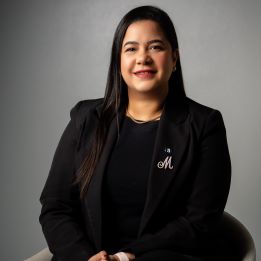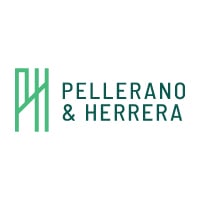

Legal and compliance director | Banco Atlántico de Ahorro y Crédito



Milagros Vásquez Valerio
Legal and compliance director | Banco Atlántico de Ahorro y Crédito
What are the most significant cases, projects and/or transactions that you and/or your legal team have recently been involved in?
I have led the structuring and documentation of a private subordinated debt issuance to strengthen the secondary capital of Banco Atlántico, in compliance with the Capital Adequacy Regulation. This process included legal validation, coordination with investors, regulatory review, and support for corporate approval.
We have also managed the acquisition and integration of active and passive portfolios from financial institutions exiting the system. This process involved due diligence, asset and liability transfer agreements, harmonisation of guarantees, regulatory validation with the Superintendence of Banks, and integration of client records, ensuring continuity of service and regulatory compliance. I personally oversaw legal traceability and the communication strategy with transferred clients.
How do you approach managing legal aspects during periods of instability or crisis to ensure the organization’s resilience?
My approach is fundamentally based on anticipation, strategic legal control, and structured communication. In complex scenarios, we activate legal contingency plans, identify regulatory risks, and maintain coordination with senior management and compliance committees.
I have reinforced response protocols for inspections and regulatory requests, ensuring traceability and consistency in our arguments. This preparation has allowed us to handle sanction procedures, adapt to regulatory reforms, and preserve the bank’s reputational and operational stability.
Based on your experiences in the past year, are there any trends in the legal or business world that you are keeping an eye on that you think other in-house lawyers should be mindful of?
A key trend is the growing interconnection between compliance, corporate governance, and technology. The regulatory environment is evolving rapidly to address risks such as cybersecurity, data protection, and digital traceability, requiring in-house lawyers to develop technical skills beyond the traditional legal framework.
The strategic role of the in-house adviser has also been strengthened, as they must anticipate regulatory impacts and participate in product design with a compliance focus. Likewise, supervisory authorities are adopting a stricter approach to AML/CTF and integrity risks, which demands more robust control structures and a transversal culture of compliance.
What factors influence your team’s decision to use external legal services versus handling matters in-house, and what criteria are used to evaluate their performance?
We engage external law firms when specific technical expertise, independence, or an external perspective is required. Although most regulatory and contractual matters are managed internally, we turn to external firms for issues such as taxation, intellectual property, complex litigation, or international structuring.
We evaluate their performance based on the technical quality of their work, responsiveness, understanding of the financial environment, ethical alignment, and cost–benefit efficiency. We consider external firms as strategic extensions of the legal team, not merely as service providers.